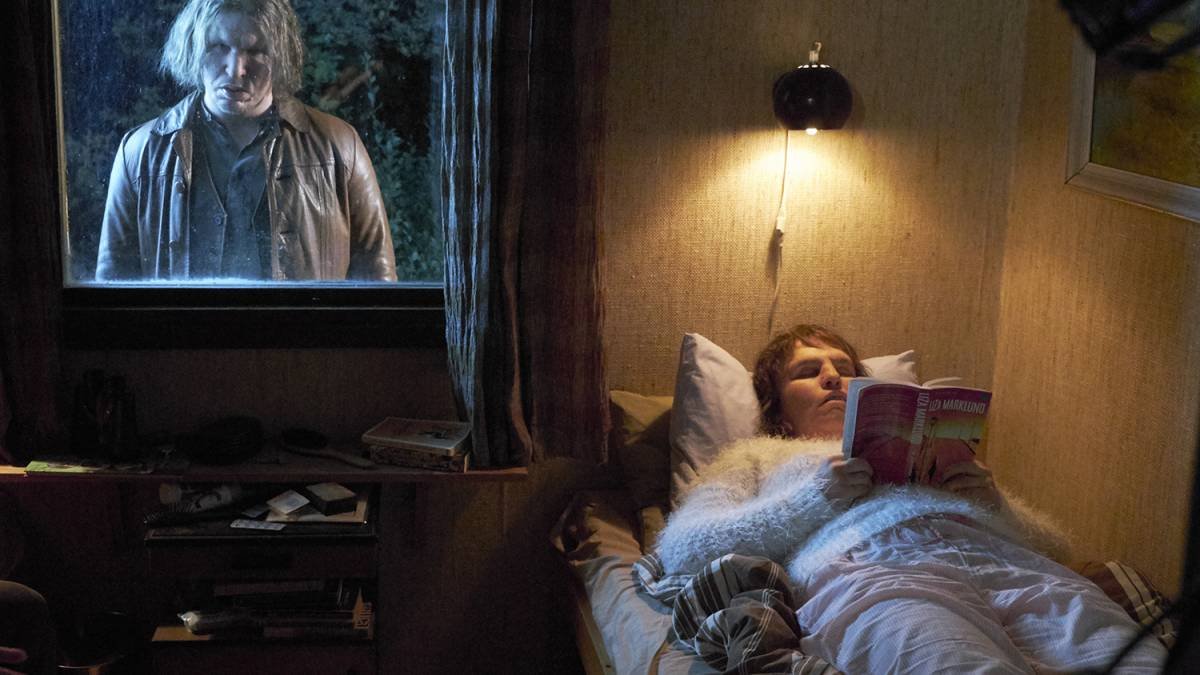Starring Eva Melander
Concurrent with the rise of Nordic noir in recent years is a reawakened interest in Scandinavian folklore, seen in movies like Thale and Troll Hunter, and now this rather wonderful effort.
Without disclosing too much about her character, played by Swedish TV veteran Eva Melander under a lot of uglifying makeup and extraneous body hair, there’s a reason that Tina can attract lightning (with a scar to show for it) and “smell human emotions”, the latter being extremely useful in her work as a customs agent at a Swedish ferry crossing. It also explains her odd relationship with wild animals and the shock of recognition she feels when the bestial and unkempt Vore (Finland’s Eero Milonoff, The Happiest Day in the Life of Olli Mäki) passes through her station with a suspect package.
Turns out he’s innocent; the real suspect package is discovered during a body inspection, revealing that Vore isn’t endowed the way you’d expect down there. Nonetheless, Tina pursues a tentative attraction, partly to the chagrin of her not quite boyfriend, Roland (Jörgen Thorsson), who’s especially pissed when she moves her menacing new friend into the guesthouse. The neighbours with the newborn aren’t too chuffed about him either. And what the hell is he hiding in the fridge?
What transpires between Tina and Vore is wild and unexpected, so prepare for one of the more giddily outrageous sex scenes arriving in theatres this year. (Holiday’s boundary-pushing director, Isabella Eklöf, shares a screenwriting credit with director Ali Abbasi and Let the Right One In novelist-screenwriter John Ajvide Lindqvist, adapting his short story.)
Tina’s assistance to police, borrowing her unique skills to bust a pedophile ring, will ultimately have some bearing on her dawning sense of self and a less happy impact on her relationship with Vore. But we should leave it at that and just state that everything in Abbasi’s movie works, most notably Melander’s supremely affecting performance and the beautifully judged shift from unfussy realism to gothic fantasy.
The film’s confusion of biological sex roles is one of its great joys; expect super-wokey North Americans to (loudly) fritter their appreciation on whatever identity fixation is fashionable right now. A much more rewarding reading will see Border as a moving celebration of the potential to simply do good, in both the human and more-than-human realms.
Published December, 2018
